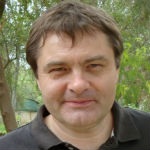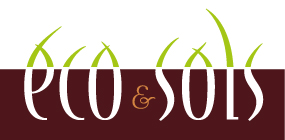 Soil scientist
Soil scientist
IRD Montpellier
IRD, UMR Eco&Sols
Montpellier SupAgro, bâtiment 12, 2 place Viala
34060 Montpellier Cedex 2, Montpellier, France
Email: This email address is being protected from spambots. You need JavaScript enabled to view it.
Tel : +33(0)4.99.61.21.08
Experience
Since 1992, Dominique Masse has carried out research in collaboration with institutions in Africa, in Senegal, Burkina Faso and Madagascar and again in Senegal between 2009 and 2015.
Between 2012 and 2015 he set up and co-directed the joint international laboratory IESOL (Ecological intensification of soils cultivated in West Africa).
His research is concerned in particular with nutrient cycles in agricultural systems at different temporal and spatial scales and their relations with soil productivity.
Skills
The research undertaken by Dominique Masse is based on ecological engineering concepts. Agrosystems must meet many different objectives depending on their agricultural products: food, forage for livestock or raw materials for industry while counterbalancing greenhouse gas emissions, all with the smallest possible ecological footprint. These objectives can only be achieved by taking account of the complexity of the agrosystems and processes that regulate them. Ecological engineering uses ecological sciences to understand agrosystem functioning and define innovative practices to improve production.
Publications
Kaboré W.T., Houot S., Hien E., Zombré N.P., Hien V., Masse D. (2010) Effect of the raw materials and mixing ratio of composted wastes on the dynamic of organic matter stabilization and nitrogen availability in composts of Sub-Saharan Africa. Bioresource Technology 101:1002–1013.
Kaboré W.T, Pansu M., Hien E., Houot S., Zombré N.P., Masse D. (2011) Usefulness of TAO model to predict and manage the transformation in soil of carbon and nitrogen forms from West-Africa urban solid wastes. Waste Management 31:154–167.
Masse D., Hien E., Kaboré T., Bilgo A., Hien V., Chotte J-L. (2011) Evolution of farming practices in sub-Saharan region confronted by demographic and climatic changes: runoff control and organic matter resources management. Ecological Engineering from Concepts to Applications. Procedia Environmental Sciences 9 124 – 129.
Koné A.W., Edoukou E.F., Tondoh J.E., Gonnety J.T., Angui P.K.T., Masse D. (2012). Comparative study of earthworm communities, microbial biomass and plant nutrient availability under one-year Cajanus cajan (L.) Millsp and Lablab purpureus (L.) Sweet cultivations versus natural re-growths in a guinea savanna zone. Biology and Fertility of Soil. 48(3):337-347. DOI 10.1007/s00374-011-0630-9
Diakhaté S., Villenave C., Diallo N.H., Ba AO., Djigal D., Masse D., Sembène M., Ndour Y., Chapuis-Lardy L. (2013). The influence of a shrub-based intercropping system on the soil nematofauna when growing millet in Senegal. European Journal of Soil Biology. EJSOBI-D-13-00029R
Masse D, Akpo E L, Assigbetsé K, Bilgo A, Hien E, Lardy L, Ndour-Badiane Y N. (2013) L’agriculture africaine face aux changements globaux : recherches et innovations basées sur les sciences de l’écologie. Comptes Rendus Biologies 336: 289-294. http://dx.doi.org/10.1016/j.crvi.2013.04.010.
Lambiénou Y, Barot S., Abbadie L., Bardoux G., Lata J-C., Nacro H B., Masse D., de Parseval H. (2015) Impacts of grass species on nitrogen cycling in a grazed sudanian savanna. Acta Oecologica 63:8-15. http://dx.doi.org/10.1016/j.actao.2015.01.002
Audouin E., Vayssières J., Odru M., Masse D., Dorégo G. S., Lecomte P. (2015) Réintroduire l’élevage dans les terroirs villageois d’Afrique de l’Ouest pour accroître leur productivité et la fertilité de leurs sols – Le cas du vieux bassin arachidier au Sénégal. In: Sultan B. & Lalou R. (Eds), ESCAPE : changements environnementaux et sociaux en Afrique: passé, présent et futur. IRD, Marseille, France, 30 pp.
Masse D, Chotte J-L, Scopel E (Coord.) 2015 L’ingénierie écologique pour une agriculture durable dans les zones arides et semi-arides d’Afrique de l’Ouest Dossier thématique n°11. Comité Scientifique Français de la Désertification. Agropolis. Montpellier.






